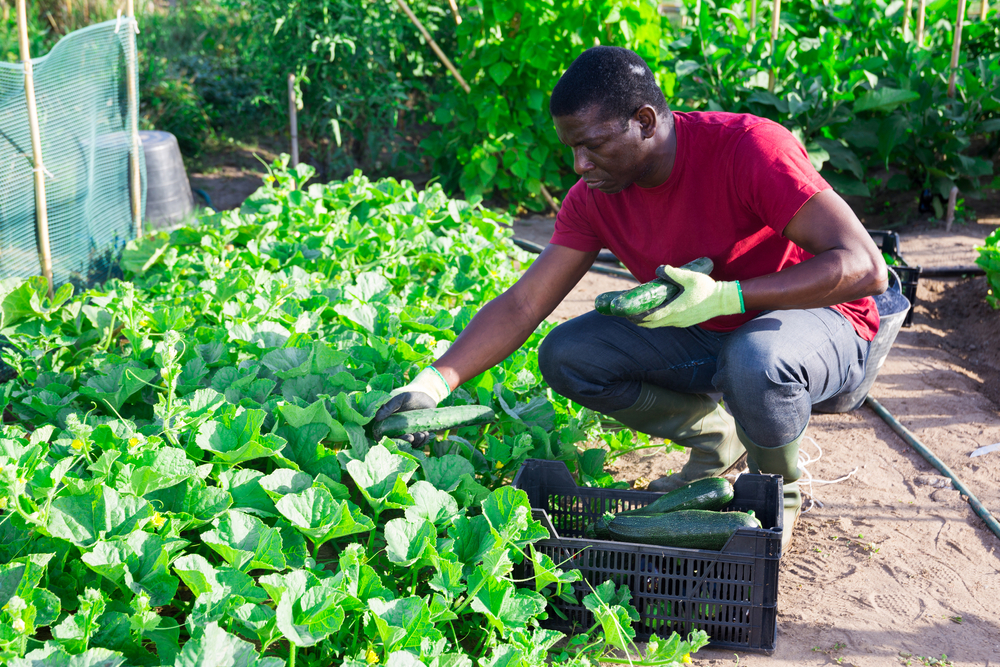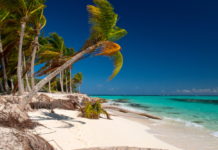Trinidad and Tobago’s economy is one of the strongest in the Caribbean region due to its heavy reliance on oil and gas. When Tobago is separated from that situation, its economic system primarily relies on the allocations received from the national budget through the central government of Trinidad and Tobago and a minimal private sector predominantly based on a fleeting Tourism industry and its ancillary sector. With the onset of COVID-19, Tobago’s economy continues to see a decline in revenues and it is anticipated that it may not recover any time soon.

Caribbean Insights Magazine held an in-depth conversation with a known economist on the island, Dr. Vanus James to gather his perspective on the situation and any future outlooks. The beginning of the conversation focused on his description of the current state of Tobago’s economy in the COVID-19 situation, then focused on some key recommendations to alleviate the challenges, and lastly, we discussed what internal self-government means for Tobago and why it is a viable solution to advance Tobago’s society.
Does value-creation and productivity exist in Tobago?
In general, Dr. James remains resolute that,
“in short, COVID-19 has caused a substantial retrogression of the Tobago economy relative to its pre-Covid state of underdevelopment.”
From the standpoint of value-creation and productivity, Dr. James highlighted firstly, the Tobago economy is primarily a government economy. Government accounts for about 50% of its output, 60% of all jobs, and about 70% of its paid employees. A high proportion of these jobs are low productivity jobs and social programs to provide livelihoods for the underemployed. Secondly, the government sector has experienced a substantial fall in value-creation, since many employees have not been able to work full-time for the pay received– teachers and low-level clerks for example. Thirdly, transport has slowed with the COVID restrictions, including the slowdown of inter-island movement. Fourthly, tourism has been virtually closed, including the flow of visitors from Trinidad. Fifthly, consideration must be given to the creative industries that have mostly shut down although media has survived. Lastly, agriculture remains a minor player, mainly because this is a locus of low productivity activity and underemployment. Yet, food security is still an important issue on the island.

When looking at the context of expenditure, Dr. James noted that the government sector has remained largely intact under the COVID-19 cash flow crisis because it is funded by net annual transfers of about $1.8 billion from Trinidad, after accounting for Tobago’s taxable capacity of about $500 million. In the absence of significant productivity growth, Tobago’s taxable capacity has actually been falling in the last two decades and this has worsened under COVID-19. But he also noted that possibly private consumption has slowed sharply, in the context of the COVID-19 restrictions and there are cash flow problems faced by employers in the private sector. Additionally, exports and foreign earning have virtually crashed, since tourism has been shut down by COVID-19 in Tobago. The economy lives on imports and these have been largely maintained backed by the net transfers from Trinidad. So, the Tobago economy continues its high dependence on the Trinidad economy.
When considering development, some key points highlighted were that development investment remains as anaemic as it was before the advent of COVID-19. There is no inflow of foreign direct investment and little evidence of new private investment from Trinidad. Government’s development spending remains focused on minor projects with low expected impact on productivity growth. With low productivity growth, the economy’s savings rate remains far too low.
Given its pool of natural resources and the level of underemployed resources available to be put to work to produce capital, Tobago’s economic development potential is still huge. This is also true partly because Tobago can now take steps to avoid many of the mistakes of governance, politics, and economy made in Trinidad and the rest of the Caribbean. However, the economy’s current capacity to innovate and compete for development is very limited, because of factors such as the small size and limited financial capacity of the majority of Tobago’s private enterprises; the dominance of government in economic activity; and the low capacity of existing industries to produce exportable capital, including creative output.
Recommendations to improve Tobago’s Economy
Despite all the challenges with the economy detailed above. Dr. James is still optimistic and had the following recommendations to give as an economist. He strongly advocated that development is a long-term investment agenda to grow living standards and the capacity for self-determination by growing the marginal product of labour, validating savings and enabling exports. Firstly, success in this growth agenda is achieved by growing the capacity to innovate and implement optimal competitive strategy. Foundations must be laid and built on, so you are looking at a program that would yield some early fruits but take upwards of 5 decades to yield its full and sustainable effects.

Secondly, Tobago can only develop on the basis of an industrialised tourism product anchored on a growing capacity to produce capital, innovate and compete. The main activities that can industrialise tourism on a competitive basis are: Exportable tertiary healthcare; Exportable tertiary education; Exportable creative industries, focused on music, the performing arts, and the historical heritage. These are also the industries that will successfully diversify the national economy. All of the identified transforming industries must be developed and retrofitted for the world of pandemics.
To be successful and self-sustaining, the investment program will require the following enablers for growth: substantial collaboration with suitable foreign direct investors, a development bank to finance Tobago’s growth, substantial reform to Tobago’s education sector and institutional development, mainly as governance reform to increase the degree of popular and legislative control of executive action and hence popular and legislative control of economic and social policy. Dr. James explained that currently, the THA is not designed to lead development in Tobago. He sees it as essentially an executive body and lacks an adequate representative design that provides for legislative oversight of executive action and opportunities to know the will of Tobagonians.
Does Internal Self-Government for Tobago really matter?
This lead to the final and main concern that is on most Tobagonians mind as we soon approach a new Tobago House of Assembly elections before January 2021. Dr. James’ perspective is clear that Tobago needs internal self- government. He explained,
“like the people of any other island, Tobagonians have their own self-concept, their own interests, and an inalienable right to self-determination. Tobagonians have the same rights as Trinidadians to unconditional equality of development opportunity, including the right to choose their political status and form of government and pursue their path of development without interference from Trinidadians or anyone else.”
Since 1889, development opportunity in Trinidad and Tobago has been monopolised by Trinidad, inclusive of the opportunities created by the energy industries. He further explained, “In any event, political and administrative autonomy for Tobago and reform of the THA are necessary conditions for development in Tobago as well as for successful diversification of the national economy”. Autonomy requires simple changes in the Constitution of Trinidad and Tobago to deliver the following:
a. Clearly defined boundaries for Tobago based on the median line between Tobago and Trinidad.
b. A Tobago Bill of Rights, featuring four elements:
i. The right to establish a form of government of its choice, complete with the unfettered capacity to make law for good governance.
ii. The right to develop the economy of its choice and to take all necessary steps to do so.
iii. The right to concurrence when the Government of Trinidad and Tobago is making a law that directly affects Tobago.
iv. The right to a specific formula for predictable revenue sharing, taking into account the size of Tobago’s population size and its economic geography.
Dr. James closed by admitting, “like development itself, the pursuit of substantive autonomy is predominantly a political activity to be undertaken by the youth of Tobago, who will live the longest to achieve it and benefit from it. The youth of today will also live the longest with the consequences of failure to achieve it.” We are moving into a “new normal” and possibly a “new Tobago” post-COVID-19, so we can only hope for the best in saving Tobago’s economy.



















